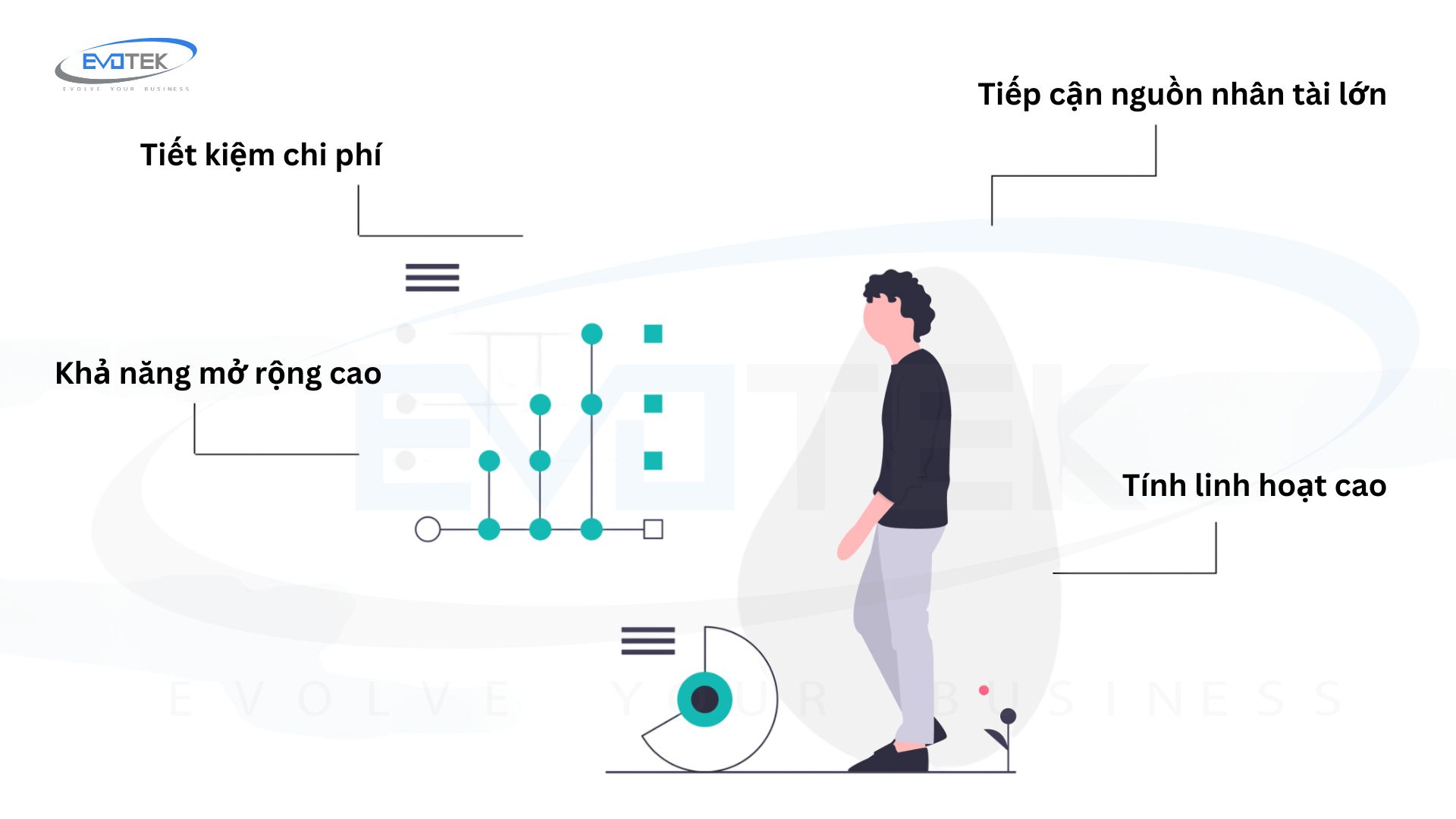Small and medium-sized businesses (SMBs) often face challenges in competing with larger companies due to limited resources. However, there are strategies they can adopt to enhance their competitiveness. One such strategy is leveraging technology transfer overseas. By doing so, SMBs can access valuable tools and reduce costs, ultimately enabling them to focus on growth and better compete with larger businesses.
Small and medium-sized businesses (SMBs) often face challenges when competing against larger rivals. Due to their constrained resources, such as financial and human capital, they need to exert extra effort to attain comparable outcomes. This encompasses effectively managing benefits packages, mitigating risks, and adopting cutting-edge methodologies.
However, SMBs serve as vital contributors to the economy, fostering job creation, providing essential services, and bolstering revenue within local communities. To stand out, SMBs can leverage technology outsourcing. Collaborating with product and technology teams abroad enables SMBs to access tools and solutions beyond their internal capabilities. This approach helps level the playing field with larger competitors.
Advantages of Software Outsourcing for SMBs
If you’re considering how software outsourcing can bolster SMBs in competing with larger enterprises, explore the following benefits of partnering with expert teams within your country. Beyond addressing technological requirements:

Optimizing Operational Costs
- Elimination of salaries, benefits, and office space expenses for in-house software development teams.
- Payment of service fees based on actual needs, avoiding high fixed costs associated with hiring full-time programmers.
- Avoidance of investments in costly equipment or hardware for software development and maintenance.
- Reduction of training expenses by partnering with experienced, highly trained professionals.
- Reduce ancillary costs such as insurance and labor taxes when outsourcing.
Access to High-Quality Human Resources
- Removal of limitations on recruiting local talent.
- Access to a diverse pool of skilled professionals from countries with advanced software technology.
- Collaboration with seasoned experts in specialized fields.
- Flexibility to scale the team up or down according to project requirements.
- Assurance of high quality through partnerships with reputable, experienced providers.
Scalability and Accelerated Development:
- Access to cutting-edge technologies available on the market.
- Flexibility in team size, facilitating adjustments based on project scale.
- Expedited product development with the assistance of expert teams.
- Swift response to market demands and capitalization on business opportunities.
- Enhancement of competitiveness by bringing products to market ahead of competitors.
Increased Flexibility and Focus:
- Concentration of resources on core business activities and development strategies.
- Reduced burden on personnel and equipment management within the IT department.
- Flexibility in resource allocation throughout various project phases.
- Elimination of the need for time and effort invested in IT staff training.
- Minimization of the risk of knowledge loss upon employee departure.
By adopting the software outsourcing model, SMBs position themselves favorably to access cutting-edge technologies managed by experienced foreign experts. This approach enhances competitiveness and fosters sustainable growth in today’s dynamic business landscape.
Risks of technology transfer to SMBs
While embracing joint ventures or transferring technology overseas offers numerous advantages, businesses must remain mindful of potential risks, including:
Language and cultural barriers: Differences in communication styles and ways of working can lead to many misunderstandings and internal conflicts, hindering project progress. To overcome this obstacle, SMBs need to invest in language training and facilitate cultural understanding for employees on both sides. In addition, standard working procedures also need to be developed to ensure everyone understands and complies.
Data security risks: In the context of technology transfer, choosing a processing partner with full information security certificates such as ISO 27001 is extremely important. This standard ensures that partners’ data processing and protection processes meet international standards, helping SMBs feel more secure when sharing sensitive information. Besides, they need to sign specific security agreements, use encryption technology, and strictly control access rights to limit the risk of data leakage and theft.
Quality control issues: Monitoring and ensuring output standards when technology suppliers are located in other countries is often more difficult. Therefore, SMBs need to build detailed quality control processes and deploy professional project management tools. At the same time, provide clear standards and requirements for output products right from the beginning for implementing partners.
Time Zone Disparities: Significant time zone differences between partners can pose difficulties in scheduling, communication, and monitoring project progress. To solve this problem, both sides need to coordinate work schedules flexibly. Make the most of digital technologies to support unlimited work, while building a clear process of updating and reporting progress, helping to ensure effective coordination. Although there are inevitable risks, with detailed planning and appropriate partner selection, businesses can minimize these risks to build successful working relationships when transferring technology. technology abroad.
Despite these inherent risks, meticulous planning and judicious partner selection can help SMBs minimize potential drawbacks and cultivate successful working relationships when transferring technology abroad.
Key Considerations for Choosing an Offshore Destination

Selecting the right offshore destination is crucial for small and medium-sized businesses (SMBs) seeking to leverage technology outsourcing to compete effectively. However, to ensure a successful outsourcing strategy and mitigate risks, SMBs must carefully evaluate potential offshore destinations based on the following factors:
Stable Political and Legal Environment: Political stability and legal frameworks directly impact SMBs’ business operations. Consideration of tax policies, financial regulations, and import/export laws is crucial to avoid legal risks and ensure operational continuity. Vietnam boasts an increasingly transparent and open business investment environment, facilitating smooth collaboration between foreign SMBs and domestic technology partners.
Technology Infrastructure and Capabilities: Assess the level of development in information technology infrastructure, communications, and remote work policies in the chosen location. Evaluate the partner’s proficiency in applying modern technology, teamwork methodologies, and adherence to industry best practices. Vietnam has made significant advancements in the IT sector, meeting these requirements effectively. Companies like Evotek demonstrate robust capabilities in digital transformation and technology solutions for SMBs globally.
High-Quality Human Resources: Quality human resources are paramount in determining the level of service SMBs receive. Thorough examination of employees’ qualifications and experience, particularly in providing software services meeting stringent standards, is essential. SMBs can assess potential partners through initial work samples or specific endorsements.
Working Culture and Communication: Overcoming communication and cultural barriers is crucial for successful offshore collaboration. Consideration of differences in work culture, language, and time zones is imperative to ensure seamless coordination and communication. Vietnam boasts a young business community proficient in foreign languages and well-acquainted with Western working culture. Firms like Evotek boast multicultural teams experienced in establishing efficient cooperation processes with foreign SMB partners.
By thoroughly assessing these factors, SMBs can make informed decisions when selecting an offshore destination, minimizing risks, and maximizing the benefits of outsourcing technology services abroad.
Best Practices for Managing an Overseas Team

Overseeing a remote team in a foreign country presents distinct challenges that managers must address proactively. Adopting the following strategies will facilitate the success of technology transfer processes abroad, enabling small and medium-sized businesses (SMBs) to compete more effectively with larger counterparts:
Establish an Effective Communication Strategy:
Communication plays a pivotal role in remote work environments. Develop a comprehensive communication strategy incorporating:
- Utilization of platforms like Zoom and Slack for video calls and instant messaging.
- Scheduling work hours to overlap between offices and clear guidelines on the use of technology and responsible personnel.
Implement an Appropriate Project Management System
Selecting a suitable project management platform empowers team members to collaborate seamlessly on projects, documents, and information sharing. Tailor the choice to your team’s requirements and business operations, seeking feedback from team members during technology trials.
Foster Awareness of Cultural Differences
Recognize that local and overseas teams may approach work differently due to corporate or national cultural influences. Educate teams on cultural norms and practices to facilitate mutual understanding and alignment of expectations. Approach these discussions with openness, acceptance, and transparency.
Monitor and Evaluate Performance
Tracking and evaluating performance metrics are essential for successful offshore technology transfers, enabling SMBs to compete effectively with larger enterprises. Employ a unified platform to monitor performance indicators and critical data. For instance, if outsourcing a call center team overseas, monitor metrics such as response times, call duration, customer satisfaction, average queue time, and cost per call.
By implementing these methods, managers can cultivate productive working relationships with offshore teams, ensuring successful project delivery and gaining a competitive edge for the business.
Common Misconceptions About Offshoring
Offshoring technology services offers numerous advantages to organizations, particularly assisting small and medium-sized businesses (SMBs) in competing more effectively with larger rivals. However, several misconceptions persist, leading many companies to hesitate in adopting this solution.
Contrary to popular belief, technology offshoring isn’t solely reserved for large corporations. SMBs can also reap benefits by outsourcing IT services, ranging from virtual assistants to project management and communication tools. This allows them to access top-tier human resources at a reasonable cost.
Another myth that needs debunking is the notion that offshoring inevitably results in job losses within the home country. In reality, by alleviating cost burdens and optimizing resource utilization, companies can expand their operations, ultimately creating more job opportunities in the long run.
Furthermore, offshoring isn’t confined to low-skilled tasks. Overseas technology teams possess expertise and experience that often surpass local resources.
Despite acknowledged risks such as data security concerns and cultural barriers, the benefits of technology offshoring for SMBs are substantial. They can achieve significant savings on personnel and technology expenses while ensuring crucial operations are handled by seasoned professionals.
When SMBs are ready to explore the potential of technology offshoring to enhance their competitive edge, they can rely on the support of professional firms like Evotek. With expertise in implementing outsourcing solutions, we stand ready to assist in building a global team tailored to your business needs, whether for long-term recruitment or temporary assistance.


 日本語
日本語 한국어
한국어 Tiếng Việt
Tiếng Việt 简体中文
简体中文